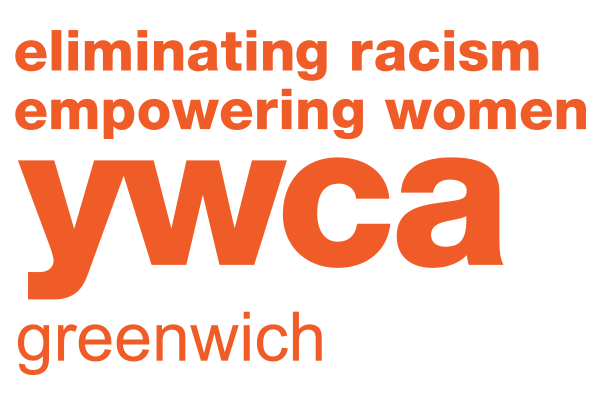
Immigrants Should Know Their Rights*
Domestic violence is against the law in the United States. It doesn’t matter if the abuse happened for the first time when you came to this country, or if it happened before arriving and has continued. The fact is that domestic violence can happen regardless of where you live, who you are, who you love, where you come from, what your economic status is, what language you speak, or what your citizenship status is.
Learn more about the issue and who you can talk to about your options for safety. If you believe you are a victim of abuse, please contact YWCA Greenwich Domestic Abuse Services 24/7 hotline at 203-622-0003.
In addition to general concerns and fears, being an immigrant or refugee can also mean additional challenges to finding safety from abuse. For example:
- You may feel ashamed about the abuse or concerned about what your community will think if they know about the abuse you are experiencing.
- You may feel dependent on your abuser economically or for your immigration status.
- If you're undocumented, you may worry about whether it's safe to talk to anyone about what's happening
- If you're undocumented, you may worry about whether you can use or trust the court system to keep you safe. Additionally, turning to the police or other authorities may seem unwise, if these were sources of danger or abuse in your home country.
- Your abuser may lie to you about your rights, use your cultural background against you, or use threats about child custody or deportation to frighten and silence you.
- You may worry what will happen if your abuser is deported.
- You may worry about your family her or in your home country if you choose to speak out about the abuse.
- You may feel that you can't reach out for help if English is not your first language.
Immigrant survivors of domestic violence, including those that are undocumented, have the right to be safe and seek help just as any other victim of family violence. The following information may be helpful for you or a loved one.
Regardless of their immigration status, a survivor can obtain:
- Police assistance
- Emergency medical care
- Shelter
- Civil restraining and criminal protective orders
- Divorce and/or custody of children
The laws and legal options for victims in Connecticut apply to all individuals, regardless of your race, ethnicity or immigration status. The court should offer you the same protections that it would any victim of family violence. Your immigration status should not affect the judge’s decision about whether or not to give you a protective or restraining order.
Undocumented immigrants may also be eligible for some public benefits for themselves or their U.S.-born children. These benefits may be granted on a temporary or emergency basis and may include programs such as Women, Infants & Children (WIC – federal supplemental nutrition program); emergency medical care, shelter, food banks and summer school programs for children.
U Visas & T Visas
Other legal remedies for survivors of domestic violence include a U Visa and T Visa. In 2000, the U.S. government created a non-immigrant visa for survivors of specific crimes. This visa is available to survivors who have suffered substantial physical or emotional injury as a result of being subjected to specific crimes committed against them in the United States. In order to qualify for a U visa, a crime victim must:
- Show that she has suffered “substantial physical or mental abuse” as the result of a form of criminal activity (or “similar” activity)
- Show that she possesses information concerning the criminal activity
- Provide a certification from a federal, state or local law enforcement officer, prosecutor or judge or authority investigating the criminal activity designated in the statute that certifies that the victim has been helpful, is being helpful or is likely to be helpful in the investigation or prosecution of the crime
The T Visa or trafficking visa, was also issued by the U.S. government for victims of crime. To be eligible for a trafficking visa, a non-citizen must show the following:
- She is or has been a victim of a severe form of trafficking
- Is physically present in the United States or at a port of entry on account of trafficking
- She has contacted a federal law enforcement agency (the BCIS, FBI, local US Attorney’s Office or the Civil Rights Division of the Department of Justice) and has complied with any reasonable request for assistance in investigating or prosecuting trafficking
- Would suffer extreme hardship involving unusual and severe harm upon removal
Other considerations for victims whose abuser is an immigrant:
If the aggressor is an immigrant, there are several factors that may impact whether or not deportation will be an issue. An immigrant who is convicted of a crime may be deported depending on the type of crime and the length of the prison sentence. If you have questions, you should consult an attorney who is knowledgeable about immigration and criminal law.
Additional Resources
Connecticut
CT Institute for Refugees and Immigrants (CIRI) Formerly the International Institute of CT, CIRI has built a legacy of leadership, compassionate service and effective advocacy for immigrants, refugees and survivors of human trafficking and torture. CIRI is a statewide nonprofit that provides legal and social services to immigrants and refugees in Connecticut to help them become self-sufficient, integrated and contributing members of the community.
Integrated Refugee and Immigrant Services: IRIS helps refugees and other displaced people establish new lives, regain hope, and contribute to the vitality of Connecticut’ communities.National
U.S. Department of Health & Human Services, Office of Women’s Health:
Offers additional tips and national resources for immigrant and refugee victims.
*Content provided by the Connecticut Coalition Against Domestic Violence

